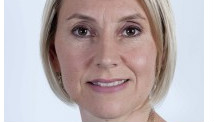The beat goes on for the Blackhawks — barely.
Against a banged up and usually bumbling Blue Jackets squad, the Hawks kept their record-setting points streak alive at 21 games with a 4-3 victory in overtime Friday night at the United Center.
The Hawks coughed up a third-period lead but came out on top when Brent Seabrook scored off a terrific feed from Jonathan Toews 3 minutes, 23 seconds into overtime to give them their second victory in as many nights.
"In overtime … you have some chances to jump into the play and take some chances," Seabrook said. "I didn't really expect Toews to make that pass. He didn't look at me once and I didn't yell. He's pretty good in those situations so I just let him do his thing.
"I don't think I shot the puck, it was such a hard pass it hit my stick and just bounced in."
Viktor Stalberg, Patrick Sharp and Bryan Bickell also had goals and Ray Emery earned the victory in goal as the Hawks improved to 18-0-3 on the season. Dating back to last season, the Hawks are at 27 games in a row with at least one point.
Vinny Prospal, Artem Anisimov and Ryan Johansen scored for the Blue Jackets but it wasn't enough as Steve Mason suffered the loss in goal.
The Blue Jackets, who entered the game with the fewest points in the league, were without defensemen James Wisniewski, Jack Johnson and John Moore and forwards Derick Brassard and Brandon Dubinsky but fought gamely.
A night after the Hawks opened their victory over the Blues with a Toews goal just 10 seconds into the game, the Blue Jackets struck quickly when Prospal jumped on a big rebound Emery yielded off a Derek Dorsett shot and fired it into the open net with 31 seconds elapsed.
Patrick Kane nearly tied it when he got free in the slot but fired a puck past Mason that clanged off the left post and slid harmlessly away. Not long after, Emery made a strong save on Cam Atkinson with his left skate to keep it a one-goal deficit.
Stalberg continued his mastery over the Blue Jackets with his 11th goal in his 15th game against them when the winger tapped in a puck in the crease during a scramble at the 16:09 mark. Mason then kept it even when he stoned Marcus Kruger from in front and the opening period ended tied 1-1.
In the second, Daniel Carcillo continued his gritty play with a big hit on the Jackets' Fedor Tyutin. The legal blow drew a response from Nikita Nikitin, who dropped the gloves with Carcillo and was on the receiving end of a flurry of punches from the Hawks winger.
The Blue Jackets kept coming and took the lead when Anisimov's shot from the point deflected off Carcillo and bounded past Emery.
Late in the second, the Hawks' offense kicked into gear. Sharp evened the score 2-2 when his backhander from the left circle somehow made it through Mason's pads and trickled across the goal line.
A splendid individual effort from Bickell put the Hawks ahead with less than a minute later. The winger stripped Anisimov of the puck, skated in two-on-one with Stalberg and rifled a wrist shot from the left dot past Mason to the stick side.
In the third, Emery held the lead when he stoned Prospal on a point-blank shot but later Johansen beat him with a nice move in the slot.
"We're finding ways to really get it done," Stalberg said. "It's pretty amazing to be a part of a run like this. It seems like it hasn't gotten to our heads at all. We're staying with it … and that's all we can do."
ckuc@tribune.com
Twitter @ChrisKuc


